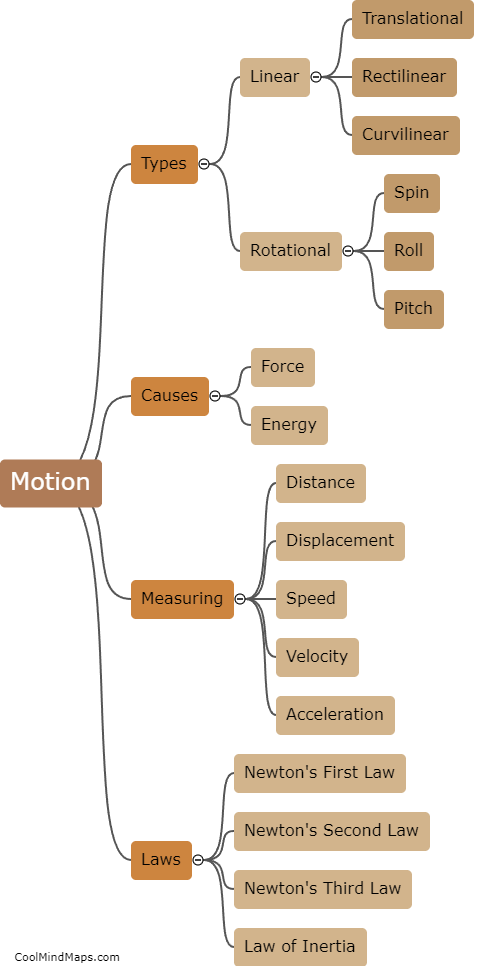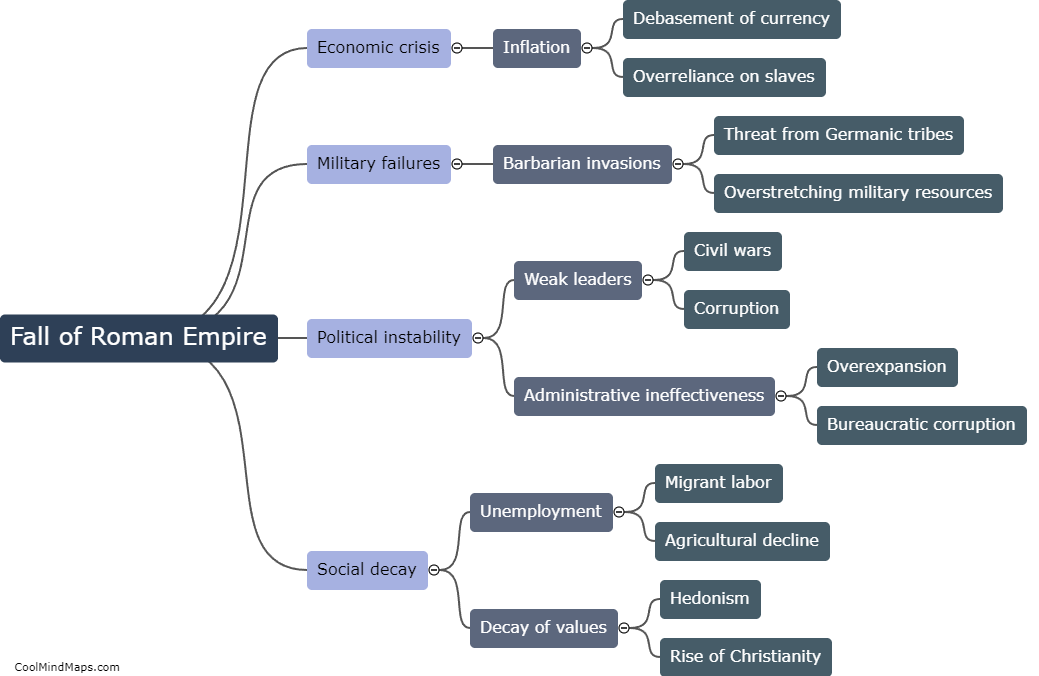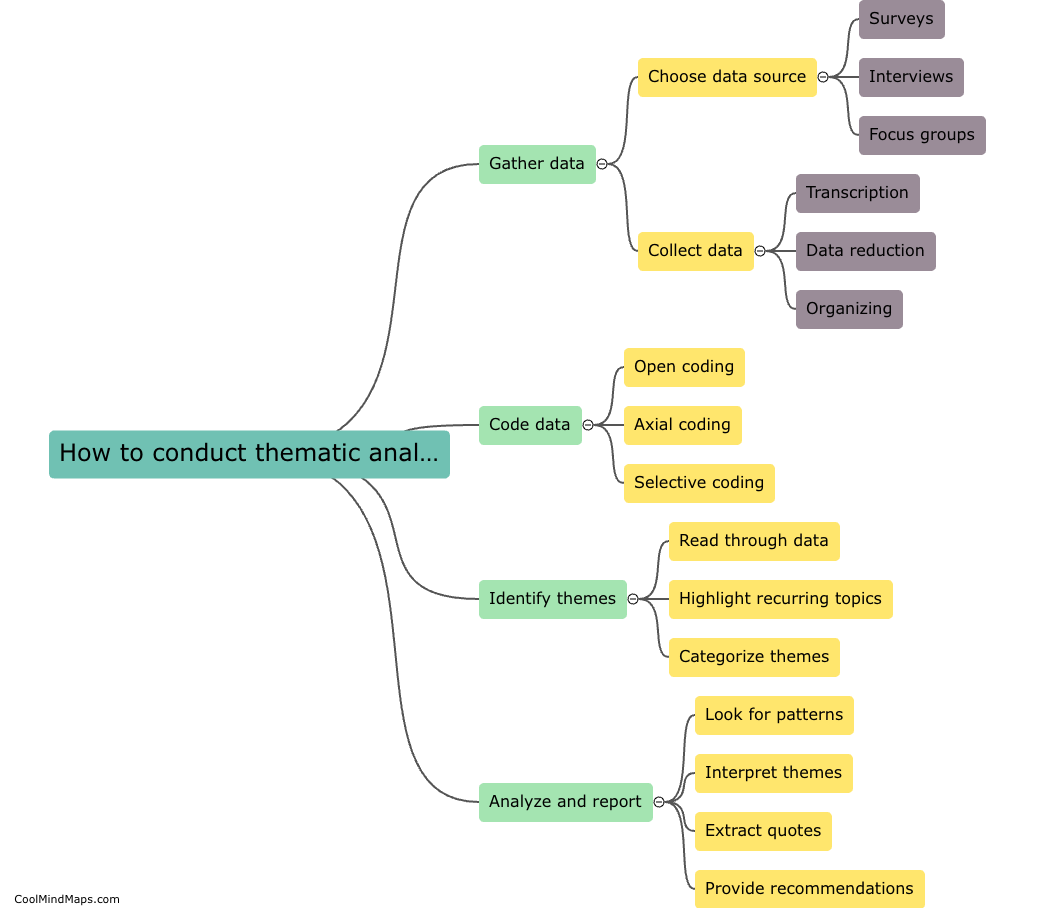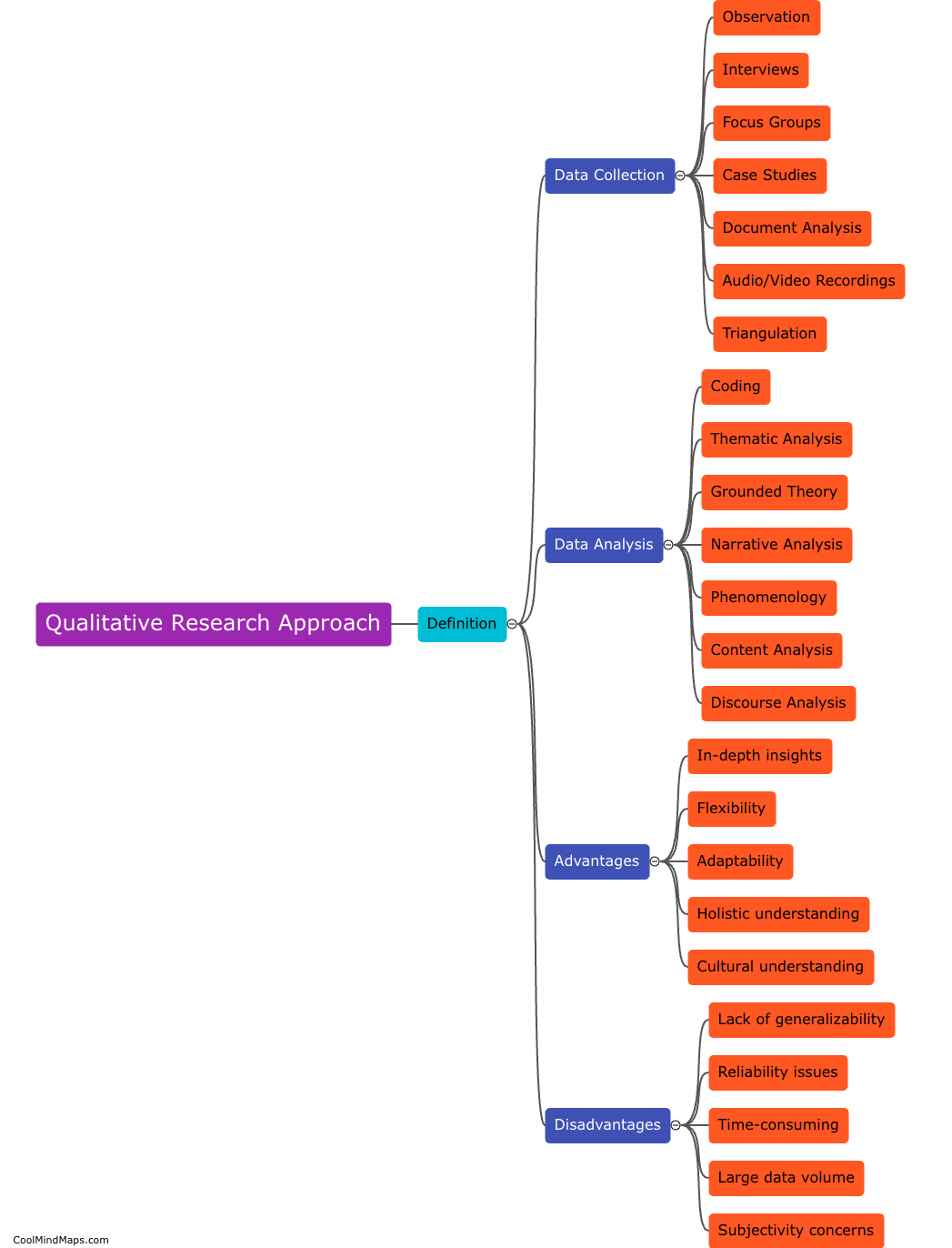What is purposeful sampling?
Purposeful sampling is a sampling technique that involves selecting participants or sampling units based on specific characteristics or qualities that are relevant to the research objective. This method emphasizes the need for participants to provide the necessary information for the research. Purposeful sampling enables researchers to obtain rich and diverse data while being able to control the sample selection. It is commonly used in qualitative research and is used to obtain information that is pertinent to research questions or hypotheses. This approach to sampling ensures that the subject pool is reflective of the research objective and aims to facilitate data collection that is both useful and informative.
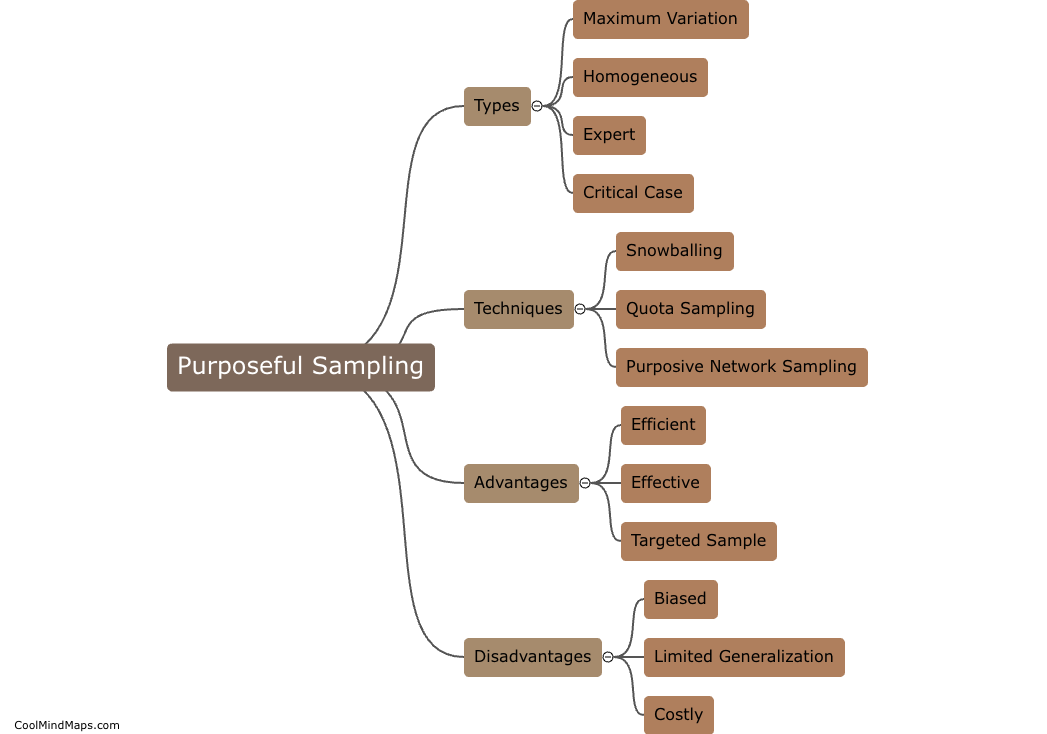
This mind map was published on 20 April 2023 and has been viewed 103 times.
